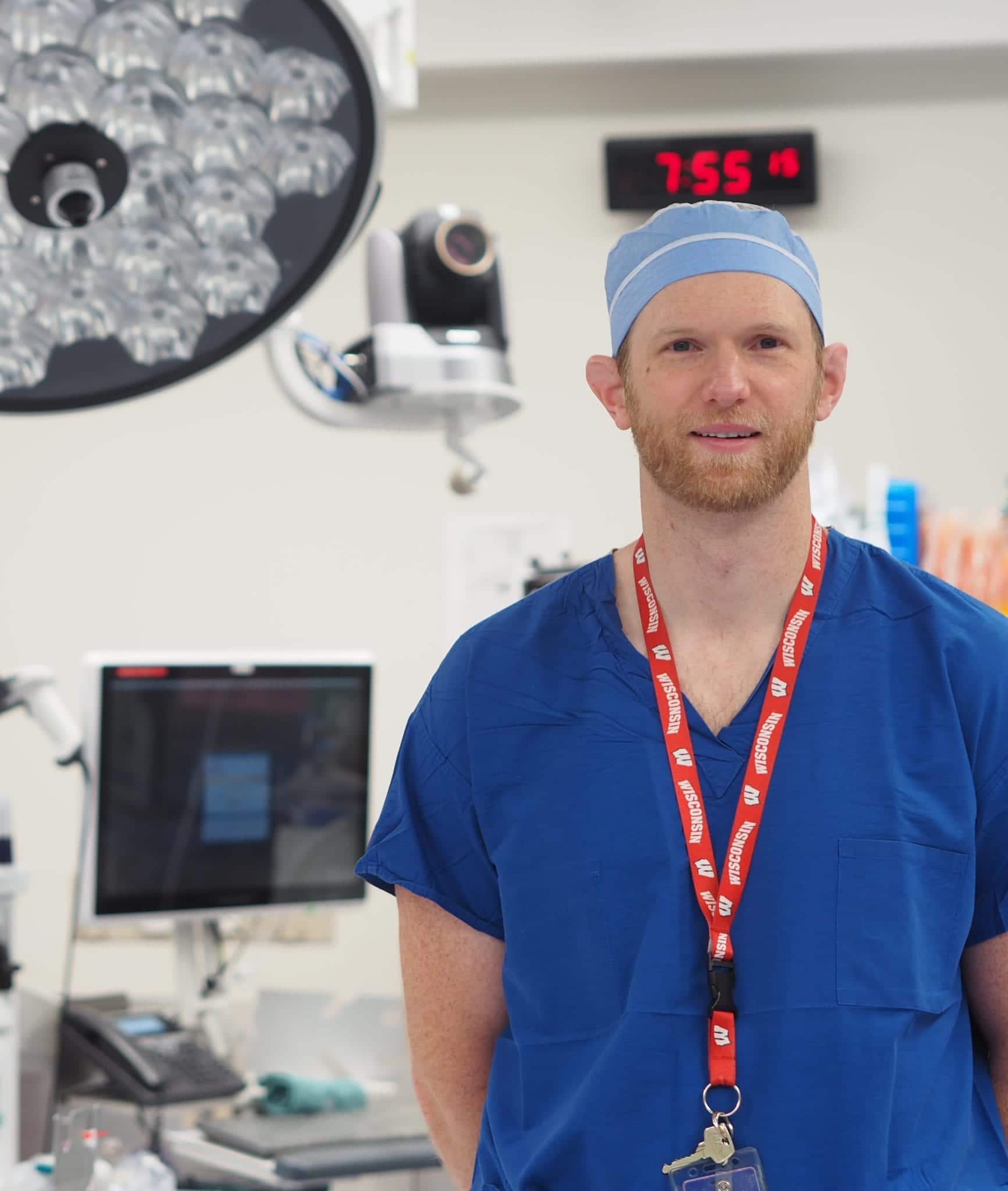Timing, communication and coordination are critical in health care, intensely so in transplant medicine. When an organ becomes available through the United Network for Organ Sharing, the private, nonprofit organization contracted by the federal government to serve as the nation’s organ transplant system, patients on its waiting list are vetted and ranked, and then the top candidate’s health center gets the call. A procurement team is deployed to evaluate and procure the organ; in some cases, multiple teams are present to recover different organs from a single donor, requiring precise orchestration to avoid damaging any of them. If an organ is viable, a surgery team will then begin preparing the recipient.
The practitioners of this seemingly miraculous process include Stephen DeVries, PA-C’12, one of just two physician assistants in the country credentialed by the Association of Organ Procurement Organizations Credentials Information Network, which qualifies him to procure hearts and lungs independent of physician supervision. He performs nearly all the procurements of these organs for the University of Wisconsin Health in Madison.

“Our organ recovery team travels all over the country to assess the organ, procure and prepare it for transport,” he says. “I discuss each case with the implant surgeon before we leave the hospital and relay my findings of each organ before they make an incision on the recipient. The implant surgeon has the patient in the operating room and will start once it is confirmed the donor organ will be viable for transplant. It’s a precisely coordinated effort. You want to get the organ reperfused as soon as possible and minimize ischemic time.”
That goal advanced in 2019 with heart transplants via donation after cardiac death, or DCD. These donors have sustained severe brain injury with no chance of survival without artificial support, but they do not meet the criteria for brain death. Traditionally, heart donations depended on a declaration of brain death, although other organs from DCD donors have been transplanted for years. However, in April 2019, DeVries and his UW Health colleagues began building a DCD heart transplant program.
“At the time, no center in the U.S. had performed an adult DCD heart transplant,” he says. “I built the surgical recovery protocol for this program and worked with Dr. Jason Smith, director of heart transplant, to build the team, worked directly with the Organ Procurement Organization regarding logistics for this type of recovery, and did outreach to other OPOs to educate them about DCD heart recovery and donor management.”
UW Health is one of five centers in the nation approved to perform DCD heart transplants as part of a recently launched clinical trial of a device that circulates warm, oxygenated blood through organs to preserve their function. On Dec. 30, its transplant team became just the third in the U.S., after Duke University Hospital and Massachusetts General Hospital, to successfully transplant an adult heart from a DCD patient.
“It was truly surreal to be at the forefront of something that will have a huge impact on heart transplantation worldwide, and to see all the hard work we’ve put in for months come to fruition in such a remarkable way,” DeVries says. Experts believe this new process could increase the number of hearts available for transplant by 30 percent. Currently, more than 3,700 people nationally are waiting for a heart.
Jason Smith, M.D., the heart transplant director at UW Health, says DeVries is “an important and valuable member” of its transplant team at a “very exciting time” in the field.
“Steve’s super strength is his dedication to both the betterment of his skills and to the team in doing a good job,” he says. “He’s a sharp, quick study with a singular focus and energy on honing that.”

